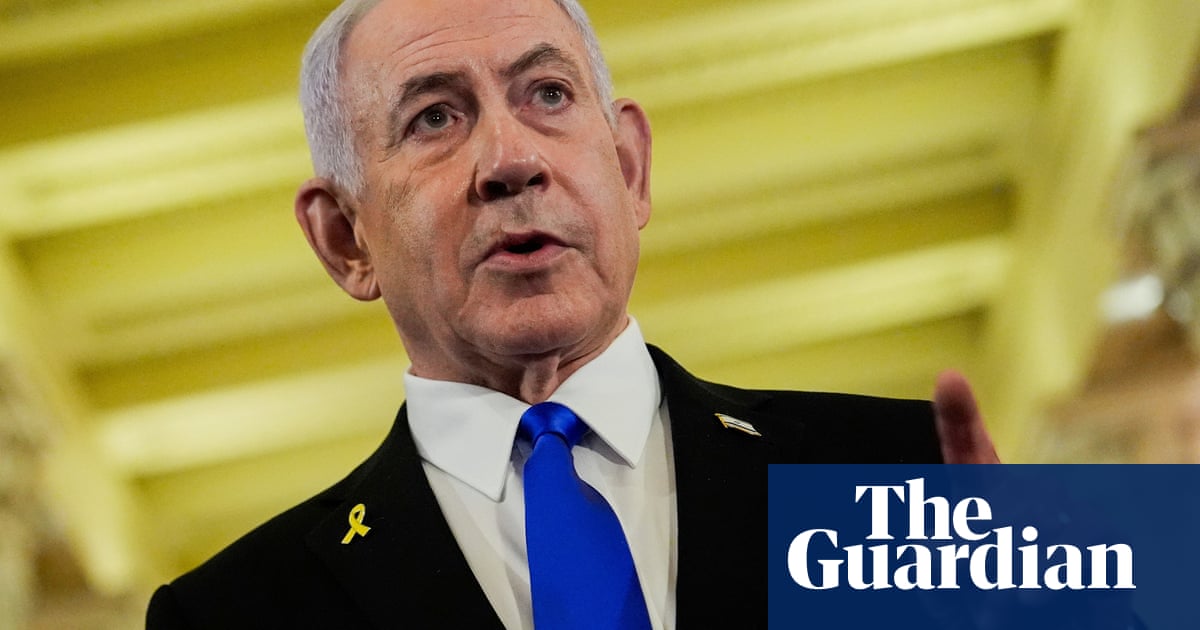Netanyahu’s Response to Declining Support for Israel Among U.S. Voters
On a recent visit to Capitol Hill, Israeli Prime Minister Benjamin Netanyahu addressed concerning trends in American public opinion regarding Israel. He emphasized his commitment to countering what he described as a coordinated social media campaign aimed at vilifying and demonizing Israel. This response comes in the wake of multiple opinion polls indicating a notable decline in support for Israel, particularly among Democratic voters.
The Context of Netanyahu’s Statements
Netanyahu’s remarks were triggered by reports that show a significant shift in perception among U.S. voters. He specifically pointed out an organized effort that he claims undermines Israel’s image in the United States. “I think there’s been a concerted effort to spread vilification and demonization against Israel on social media,” he told journalists, underscoring the urgency of the situation. His assertion reflects a growing concern that such narratives could influence U.S. foreign policy and public sentiment towards Israel.
Polling Data and Shifts in Support
The numbers paint a stark picture. A Gallup poll from March revealed that less than half of the U.S. public sympathized with Israel’s stance, marking the lowest level of support recorded since these surveys began. Among Democrats, the shift is even more pronounced, with only 38% aligning with Israel compared to those who sympathize with Palestinians. This represents a reversal from a 2013 Gallup survey, where Democratic voters were more inclined to support Israel by a margin of 36%.
Recent Political Developments
Netanyahu’s comments came shortly after the Democratic primary victory of Zohran Mamdani for mayor of New York. Mamdani’s campaign was significantly bolstered by his outspoken support for Palestinian rights and criticism of Israel’s military actions. This electoral success has raised alarms among pro-Israel advocates and underscores changing attitudes within the Democratic Party.
The Human Cost of Conflict
As the rhetoric intensifies, the human toll of the ongoing conflict in Gaza remains critical. The ongoing war has resulted in around 60,000 deaths, predominantly among Palestinians, and has placed immense strain on the region’s resources, leading to widespread starvation. This humanitarian crisis is a pivotal factor influencing public opinion and generating calls for a reassessment of support for Israel among American voters.
Netanyahu’s Strategy for Countering Misinformation
In light of these challenges, Netanyahu articulated a strategic approach to regain public confidence. He stated, “Nothing defeats lies like the truth, and we shall spread the truth for everyone to see.” His administration plans to leverage this narrative, focusing on highlighting the facts and dismantling misinformation. The Israeli leader expressed optimism that transparency and factual information could turn the tide in favor of Israel’s image over time.
Proposed Ceasefire Initiatives
During his discussions in Congress, Netanyahu indicated that his government had accepted a proposal for a ceasefire with Hamas, mediated by Qatar. This proposal aligns with earlier suggestions from Steve Witkoff, a former envoy during the Trump administration. The terms involve a 60-day ceasefire, with contingent releases of hostages. This move is seen not only as a potential step towards de-escalation but also as a tactic to regain favor among international observers.
Bipartisan Support and Future Meetings
Furthermore, Netanyahu highlighted the unprecedented level of military coordination and cooperation between the U.S. and Israel, asserting that such collaboration has never been achieved in Israeli history. He credited President Trump for this profound relationship and expressed eagerness to meet with President Biden during his current U.S. visit. This ongoing dialogue underscores the strategic partnership that aims to bolster American support for Israel amidst shifting public sentiments.
Summary of Key Aspects
Netanyahu’s proactive stance against the vilification of Israel, the alarming polling data, the recent political shifts within the Democratic Party, and the deteriorating human situation in Gaza all contribute to a complex and dynamic narrative surrounding U.S.-Israel relations. The Israeli leader’s commitment to truth and transparency, coupled with his efforts to strategically engage with American lawmakers, will likely shape the discourse in the months ahead.


